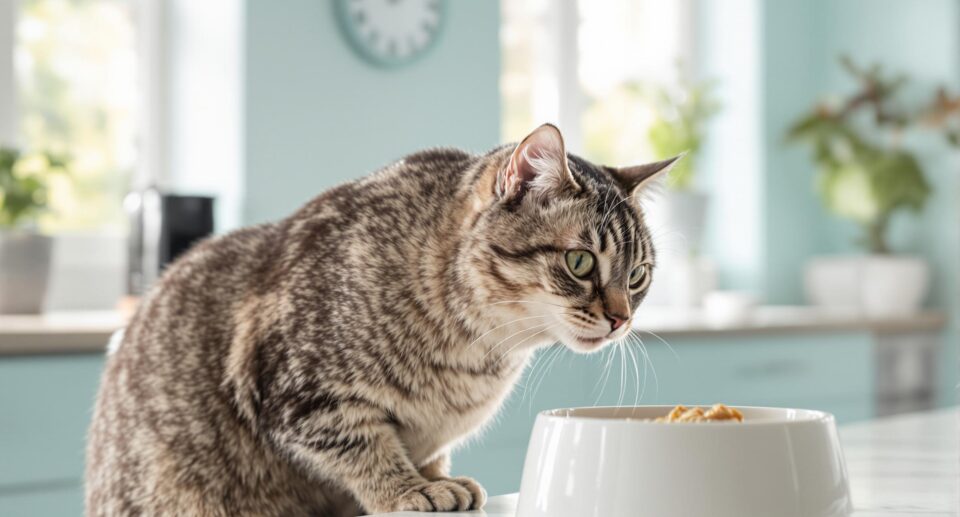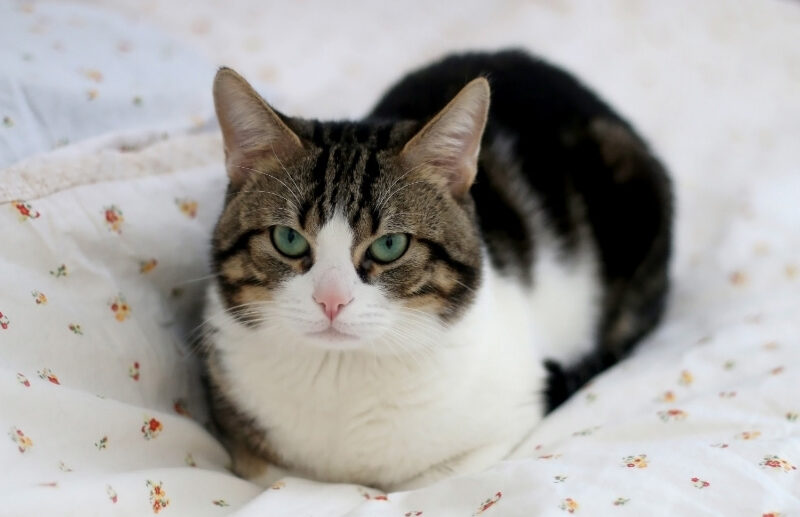Is A Raw Diet Right For My Cat?

Our beloved lap-warmers and purr-machines are biologically very similar to their wild predecessors. They still have those same innate instincts, reflexes, and hunting skills. Much like their ancestors, they’re still obligate carnivores that thrive on a diet primarily made up of the meat. While many cats don’t seem to mind chowing down on their carb-heavy kibble, commercial diets may be one of the reasons why chronic health issues like diabetes, obesity, and dental disease are so prevalent in domestic felines.
A complete and balanced raw diet is much more biologically appropriate and biologically available, meaning it’s easier for your cat’s body to absorb the nutrients they need from it. A quality raw diet is more than just a replica of what they’d eat in the wild; it’s even better. Carefully balanced and specifically formulated to meet your cat’s needs, a fresh diet can help improve your cat’s health and may even add years to their life.
How Cats Benefit From A Raw Diet
If your cat eats a dry kibble diet, they most likely do not drink enough water to stay adequately hydrated. The high moisture content in raw food supports your cat’s digestive system and helps keep their urinary tract healthy. The moisture also adds volume, helping your cat feel more full on fewer calories.
Raw diets are high in protein, helping your cat to build and maintain muscle mass and feel satiated while maintaining a healthy weight. The lack of plant-based carbohydrates in a raw diet, too, can help keep your cat’s weight under control and lower their risk for diabetes.
Raw feeders of felines also report improved dental health, likely because the chewing action helps keeps teeth clean.
Selecting certain ingredients for your cat’s diet, whether you’re making homemade food or supplementing a commercial food, can help you work towards specific health goals. For example, if your senior cat has arthritis, you may choose to feed chicken necks because they’re high in joint-building nutrients glucosamine and chondroitin.
Risks Of Feeding Your Cat A Raw Diet
Raw feeding is not without risks, but most can be mitigated with the guidance of a holistic or integrative veterinarian or nutritionist, or by feeding a premade raw food that’s complete and balanced.
One of the biggest risks of feeding a homemade raw diet or using an unbalanced product is creating nutritional deficiencies. For example, cats are unable to produce the amino acid taurine and must get it from their diet. A diet lacking in taurine can cause lethargy, blindness, and even death. A calcium deficiency causes the body to leach calcium from bones, causing bone deformities in cats, especially growing kittens. On the other hand, a diet that contains too much of certain nutrients, particularly fat-soluble nutrients like vitamin A, can cause life-threatening health issues.
Most cats can tolerate raw food without getting sick from common foodborne pathogens. Cats have a short digestive tract, so food moves through their body quickly, helping to prevent bacteria from having a chance to fester. Their stomach acid is also lower in pH than a human’s, creating an environment in which salmonella and E.coli cannot grow. However, it is possible for kittens, senior cats, and those with a compromised immune system to contract salmonellosis or an E.coli infection. For such cats, a balanced home-cooked diet may be a more suitable option.
What’s more, raw fed cats shed pathogens in their feces. If your cat eats a raw or partially raw diet, make sure family members always wash their hands after cleaning the litter box, and always wipe down tables and countertops before preparing food if your cat walks across them with litter-dusted paws.
How To Introduce Your Cat To Raw Foods
Cats are often hesitant to eat new foods, and they also tend to vomit easily when they eat something unfamiliar. For these reasons, introducing your cat to raw food can take weeks, if not months. You may need to place just a small portion of muscle meat or ground raw food in their bowl each day alongside their usual food. That way, they will get accustomed to the smell, and may gradually start to eat it. It can also be helpful to partially cook boneless muscle meat or organs at first, as warming up the food can make it more enticing.
For some cats, you may have a greater chance of success if you first transition from dry food to canned food, and then slowly introduce raw from there. That way, your cat will become accustomed to a moisture-rich diet that’s lower in carbohydrates, setting them up to accept raw food. If raw does not end up being the best option for your cat, you can still upgrade their diet with a dehydrated diet like Honest Kitchen or a freeze-dried raw option. As always, consult your veterinarian anytime you’re considering making major changes to your cat’s diet.





